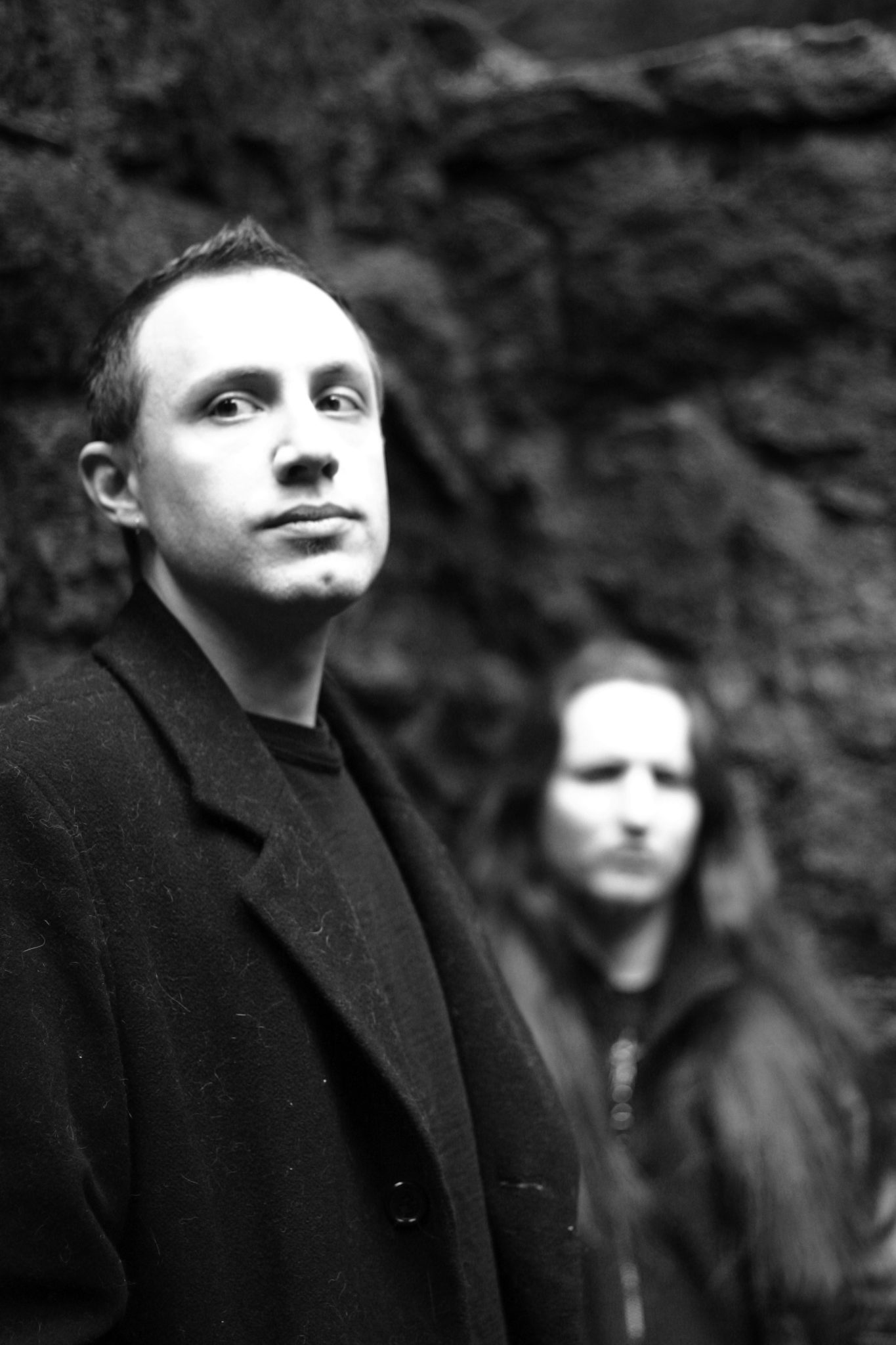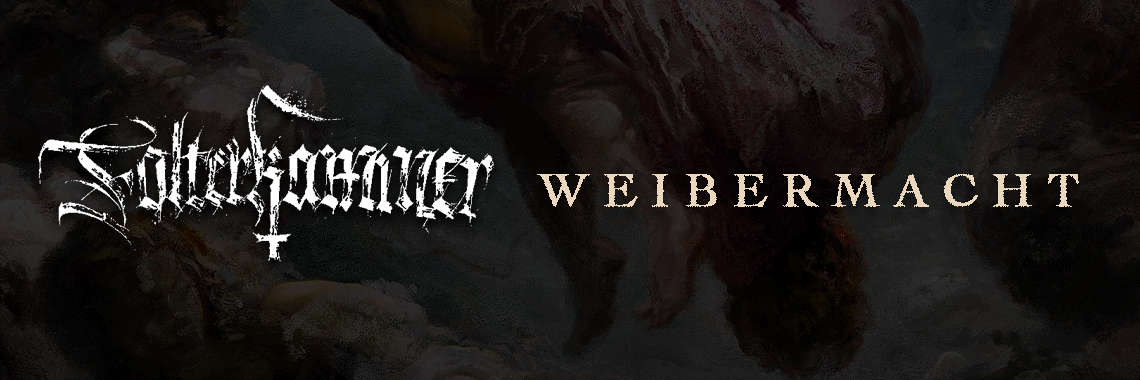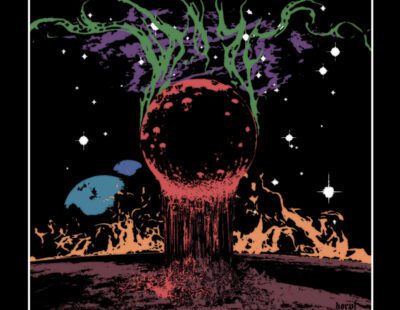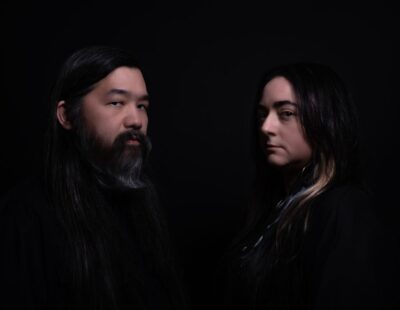
Though Agalloch‘s existence since their rather unceremonious 2016 breakup has been… interesting, their influence is undeniable. One of the first American bands to follow the “dark metal” path — that is to say, something which is too gothic to be black metal and too blackened to be gothic (It is a bit of a nebulous umbrella genre. Think early Katatonia or Empyrium.) — Agalloch’s threads can be heard across the board, partially giving birth to the more “atmospheric” vein of U.S.-bound black metal, or what some call “Cascadian black metal.”
The White and The Grey EPs were departures for Agalloch — shedding their overt metal-isms in favor of zero-ing in on the influences which set them apart in their career. The White‘s “The Wicker Man”-influenced music focused on the neofolk and post-industrial sounds which defined early works like Pale Folklore and The Mantle, whereas The Grey‘s more experimental work expanded upon the song “The Lodge” in a more psychedelic, post-rock influenced manner which was a more overt influence from Ashes Against the Grain onward. In a classical sense, these EPs were meant to display a more experimental side of the band, and Agalloch’s two departures (three, if you count the Tomorrow Will Never Come 7-inch EP) display a band able to compartmentalize and focus into single parts of their whole.
Now individually released on vinyl for the first time (not counting the Whitedivisiongrey set, which was released on the Dämmerung Arts label in 2011), The White and The Grey are finally available to a wider audience thanks to German label Eisenwald.
Read an exclusive interview with former Agalloch guitarist Don Anderson and watch a video of Anderson performing “A Desolation Song” with Panopticon’s Austin Lunn below.
The White and The Grey EPs were originally extremely limited adventures outside of the canonical Agalloch style, released on the now-defunct Vendlus Records. What led to these new repressings on the Eisenwald label?
I personally think The White EP is one of the best things we’ve done and I know a lot of people loved that EP. So, firstly, there was a demand for it, maybe not as much for The Grey EP. Aside from the small run on Vendlus records, we put it out ourselves in 2011 on Dammerung Arts as both a double CD book, and a Double LP set that we titled Whitedivisiongrey. That was the first time the EPs had appeared on vinyl. Eisenwald was a label we were, and still are, very close with. So, it seemed natural to make it available again as an LP and CD with them. I think maybe initially we didn’t want either EP to be major statements in our discography so we agree to a limited run, but over time we’ve all come to really appreciate both EPs, especially The White so we’re happy to have them available.

What is it like revisiting these as full discography canon as opposed to minor statements?
That’s an interesting question, because definitely with The White it has become a major part of our discography in hindsight regardless of how I or the other guys felt about it at the time. When I recently listened to it all the way through, I was very moved by it and still found it really satisfying. Before the band broke up, I had secretly harbored doing a second acoustic EP because I thought there was so much more we could do with that format. I don’t remember if I ever suggested that to the guys, but it was something I was interested in pursuing in the near future. So looking back, maybe The White EP was more of a major event than I thought it was.
And how do you feel about revisiting The Grey, especially with the added dub remix?
I’m really pleased by the remastering of The Grey. As for the material, I still like that version of “The Lodge,” but it does sound like a band doing a “post-rock” song rather than a band that is incorporating that influence into their broader sound — which is what I think we did on the full lengths. It was fun, but I’m fine with The Grey being more of an “oddity” in our catalog — and that definitely goes for the dub remix especially! I think that dub remix was done partly in jest, but there’s moments of it I think are really cool. So, all that said, The White EP has remained for me the most compelling of the two.
These reissues come as a bit of a surprise considering, to approach a sensitive subject, the happenings in the Agalloch camp over the past few years. Have things changed behind the scenes?
I am really happy to say that, yes, things have changed for the better. [Former Agalloch frontman] John [Haughm] and I remained in contact all through the three years following the breakup, but it was all business. Gradually, those emails became more casual and we were both moving towards finally meeting and hashing things out — essentially doing away with the weight that had been burdening our shoulders for years. I carried a great deal of bitterness and hurt during those years and eventually I got tired of it. I know John was tired of it, too. Then he made that anti-Semitic comment on Facebook that I, Jason, and Aesop condemned. We still condemn it. But, I think it’s critical that our culture does more than “call out” bad behavior, but tries to call someone in and discuss things like this. The first person I emailed after our statement condemning the comment was John. John’s comment accelerated our meeting and we not only talked about the breakup, but we talked about his comment. We discussed the ways it was harmful. I’m not defending him in this regard, but having been close friends with him for over twenty years and this being the first time I had ever seen him say anything anti-Semitic, I felt it necessary to talk with him and reach an understanding. I know John regrets the comment. Through all this I’ve learned a lot about forgiveness and compassion, and I think that goes for John as well.
Could these reissues be taken as a sort of outward forgiveness? Or am I looking too far into this?
No, I think there was enough demand for it and interest from Eisenwald to do a really nice presentation of the EPs. As for a showing of amends, I think that happens whenever we have beers together.
What brought about this live performance of “A Desolation Song” with Austin Lunn?
I did some Facebook live videos playing solo acoustic Agalloch songs a few months after the breakup. A lot of people seemed to really respond positively to that. So, I put together a set of solo acoustic versions and began doing a few shows. Eventually, I got an offer to join Panopticon, Aerial Ruin, Saor, Sylvaine, and Marisa Kaye Janke for an all acoustic performance in Antwerp, Belgium. It was such a rare evening that many of us guested on one another’s songs to make it more special. Austin seemed the perfect choice to join me for that song in particular.
What was it like revisiting that particular song with another artist?
It was great because a different singer will always bring out something different from a song. Austin has a strong country background and he drew that out from the performance. What was originally a folk song, became more country with Austin.
Did you ever expect this song to have a country character?
I’m not surprised that it can. I grew up on country singers like Johnny Cash, Willie Nelson and Waylon Jennings — that’s what my parents listened to. The original inspiration for it was Amorphis’ acoustic version of “My Kantele.” I wanted something like that instrumentation. In fact, the same guy who did accordion on The Mantle also played on The White EP. But, country runs in Austin’s blood, so it was inevitable.
Are there any specific memories which arose with the reissue of The White EP?
The White EP was the last time I, or any of the other guys, worked with our longtime engineer Ronn Chick. I had worked with Ronn since 1993 and he recorded everything Sculptured and Agalloch did (excluding the From Which of this Oak demo). He played a significant part in shaping our sound and ultimately teaching us how to record the kind of music we wanted. Not long after The White EP, Agalloch underwent some significant changes including gaining a new drummer, leaving The End [Records], and achieving independence where we could license our work to a label. So, it felt natural to try a new engineer. So, The White EP was kind of a closing of a long chapter in our history, but also an opening of a new one.
Though the full-length catalog has been recently reprinted, will any other Agalloch rarities make their way back into print? I still covet a few hard-to-find releases which sold out pretty quickly.
There’s no plans at this time for any further reissues. But, I suppose if there’s interest and demand, then that’s always likely.
Do you have any final thoughts you’d like to add?
When Agalloch broke up there seemed to be a division in our fanbase and even the people who worked with us. John vs. us; Pillorian vs. Khorada. I hope now that we’ve put the breakup behind us, everyone else can as well.







